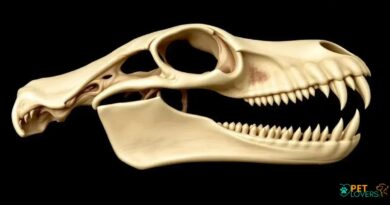O que é age-related care
What is Age-Related Care?
Age-related care refers to the specialized approach to managing the health and well-being of aging dogs. As dogs grow older, they experience various physical and mental changes that require tailored care strategies. This type of care focuses on addressing the unique needs of senior dogs, ensuring they maintain a good quality of life as they age.
Understanding the Needs of Senior Dogs
Senior dogs often face challenges such as arthritis, dental issues, and cognitive decline. Recognizing these conditions is crucial for providing effective age-related care. Regular veterinary check-ups become essential to monitor these health issues and to adapt care plans accordingly. This proactive approach helps in early detection and management of age-related ailments.
Nutrition for Aging Dogs
Proper nutrition plays a vital role in age-related care. Senior dogs may require diets that are lower in calories but higher in fiber to maintain a healthy weight. Additionally, incorporating supplements such as omega-3 fatty acids can support joint health and cognitive function. Consulting with a veterinarian about the best dietary options is essential for optimizing the health of aging pets.
Exercise and Mobility Considerations
Maintaining an appropriate level of exercise is important for senior dogs, but it should be tailored to their physical capabilities. Gentle walks and low-impact activities can help keep them active without overexerting them. Age-related care involves understanding the signs of fatigue and discomfort, ensuring that exercise routines are both beneficial and enjoyable for older dogs.
Grooming and Hygiene for Older Dogs
Grooming is another critical aspect of age-related care. Older dogs may have difficulty grooming themselves due to mobility issues or dental pain. Regular brushing, bathing, and nail trimming not only keep them clean but also help in monitoring their skin and coat condition. This can prevent potential health issues and enhance their overall comfort.
Cognitive Health and Mental Stimulation
Cognitive decline is a common concern in aging dogs. Age-related care should include activities that stimulate their minds, such as puzzle toys and interactive games. Regular mental engagement can help slow down cognitive deterioration and keep their minds sharp. Additionally, maintaining a consistent routine can provide comfort and stability for senior dogs.
Veterinary Care and Regular Check-ups
Regular veterinary visits are essential for age-related care. These check-ups allow for monitoring of chronic conditions and adjustments to treatment plans as needed. Vaccinations, dental care, and screenings for common age-related diseases should be part of a senior dog’s healthcare routine. Building a strong relationship with a veterinarian who understands the specific needs of older dogs is invaluable.
Creating a Comfortable Living Environment
Adapting the home environment is crucial for the comfort of aging dogs. Providing soft bedding, easy access to food and water, and minimizing stairs can significantly enhance their quality of life. Age-related care also involves ensuring that the living space is safe, reducing the risk of slips and falls, which are common in older pets.
Emotional Support and Bonding
Emotional well-being is an often-overlooked aspect of age-related care. Senior dogs benefit from increased attention, affection, and companionship. Spending quality time with them can help alleviate feelings of anxiety or loneliness. Engaging in gentle play and maintaining a strong bond can contribute positively to their emotional health.



